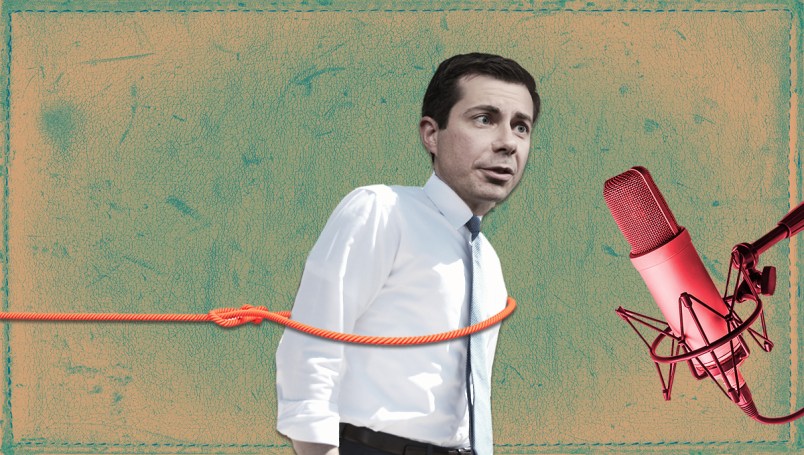South Bend Mayor Pete Buttigieg sat down to talk with a popular country music radio host in an attempt to reach voters outside the “traditional political media bubble,” according to his campaign — so why did his interview never air?
As the Washington Post first reported, Cumulus Media, parent company for the “Blair Garner Show,” cited the FCC “equal time rule” as rationale for the decision to withhold the interview.
“Cumulus Nashville’s programming managers made the decision not to air Blair Garner’s pre-recorded interview with Mayor Pete Buttigieg because of the large number of political candidates currently in this race,” the company said in a statement. “The decision was made by local programming management based solely on concerns related to the application of the FCC’s Equal Time Rule. The effects of the FCC’s Equal Time Rule are widely understood and considered whenever these types of issues arise.”
This makes sense on its face. But as Andrew Schwartzman of Georgetown’s Institute for Public Representation told TPM, Buttigieg’s interview with Blair Garner almost certainly falls within an exemption to the rule.
Lis Smith, senior communications director for the Buttigieg campaign, declined to comment further than an original statement of “disappointment” that listeners wouldn’t hear the interview.
“It’s important to Pete to reach voters everywhere, and we’ve made it a point on this campaign to go outside the traditional political media bubble — that’s why we reached out to Blair about an interview,” she told TPM. “He has a big audience, and it’s an audience that doesn’t typically hear directly from Democratic candidates for president. It was a great discussion and we are obviously disappointed that Blair’s listeners won’t have the opportunity to hear it.”
Cumulus Media did not respond to requests for comment.
“Equal Time” Rule
The “equal time rule,” more formally called “equal opportunity” in section 315 of the Communications Act of 1934, reads:
“If any licensee shall permit any person who is a legally qualified candidate for any public office to use a broadcasting station, he shall afford equal opportunities to all other such candidates for that office in the use of such broadcasting station.”
However, the right comes with four exceptions, one of which is a “bona fide news interview.”
In a 2016 declaratory ruling, the FCC detailed exactly what qualities make a news interview “bona fide” and thus exempt from the equal opportunities statute.
- Whether the program is regularly scheduled
- Whether the broadcaster or an independent producer controls the program
- Whether the broadcaster’s or independent producer’s decisions on format, content, and participants are based on newsworthiness rather than on an intention to advance or harm an individual’s candidacy
“This was almost certainly a bona fide news interview,” Schwartzman said. “If another candidate asked for equal opportunity, equal time, the station could say no.”
He added that even if the exemption didn’t apply, it would be such a hassle for other candidates to contact each licensee of Cumulus Media within seven days to ask for equal time that they probably wouldn’t bother anyway.
“In practice, here’s the bottom line — it is highly unlikely that any candidate that wished to could successfully obtain time under equal opportunity…just to request the time is a process that is complicated and probably not worth it,” he said. “And anyway, this interview is almost certainly exempt.”
He continued: “This is much more likely to be about Cumulus not wanting to be seen as promoting a candidate who may not be particularly consonant with the proclivities of country station listeners since he is — how should we put this — gay.”



